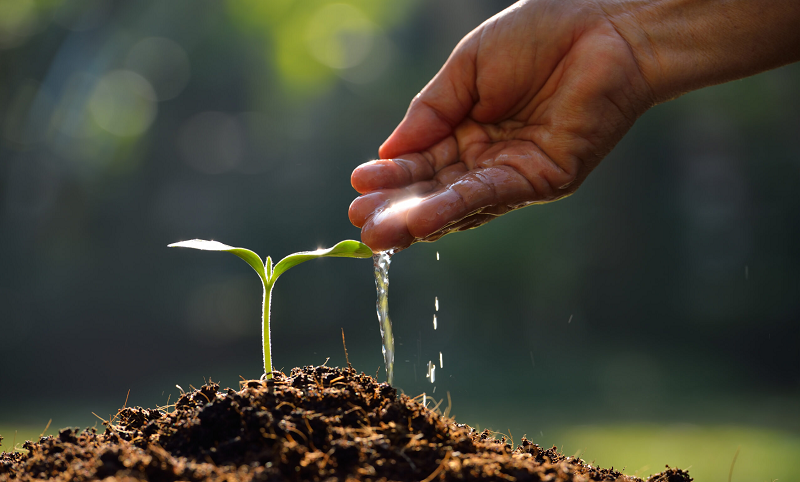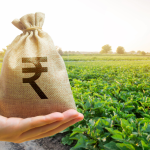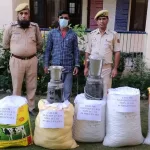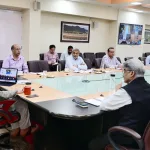Nurturing the Earth’s Lifeline
In the realm of global sustainability, agriculture stands as a pivotal sector influencing environmental health, economic stability, and societal well-being. As the world population burgeons and climate change intensifies, the imperative for sustainable agricultural practices grows ever more pressing. Central to this endeavour is the conservation of water resources, a fundamental element both for agriculture itself and for maintaining ecological balance. This article explores the interconnectedness of sustainable agriculture and water conservation, delving into innovative practices, challenges, and the path forward.
Understanding Sustainable Agriculture
Sustainable agriculture encompasses a spectrum of farming practices designed to meet current agricultural needs without compromising the ability of future generations to meet their own needs. Sustainability in agriculture aims to strike a balance between economic viability, environmental stewardship, and social equity. This holistic approach considers the long-term effects of agricultural activities on ecosystems, soil health, biodiversity, and water resources.
Sustainable agriculture includes minimizing synthetic inputs such as fertilizers and pesticides, promoting biodiversity through crop rotation and agroforestry, and enhancing soil health through organic practices like composting and cover cropping. By nurturing healthy soils and ecosystems, sustainable agriculture not only boosts crop resilience to climate change but also reduces reliance on external inputs, thereby mitigating environmental impacts.
Sustainable agriculture represents a paradigm shift in farming practices aimed at balancing the needs of food production with environmental stewardship and socio-economic well-being. Sustainable agriculture seeks to optimize resource use efficiency while minimizing negative impacts on ecosystems and promoting resilience to climate change. Soil health management through practices like crop rotation, cover cropping, and organic farming methods that enhance soil fertility and reduce erosion.
Water conservation strategies such as drip irrigation and rainwater harvesting help mitigate water scarcity, crucial in regions facing droughts and erratic rainfall patterns. Biodiversity conservation plays a pivotal role through diverse cropping systems and habitat preservation, fostering natural pest control and pollination services. Integrated pest management techniques minimize reliance on chemical pesticides, preserving ecosystem health and reducing environmental contamination.
Energy efficiency is also prioritized, with sustainable agriculture promoting renewable energy use and reducing greenhouse gas emissions from agricultural activities. Sustainable agriculture supports equitable access to resources and markets, empowering smallholder farmers and strengthening local food systems. Policy frameworks and institutional support are essential in scaling up sustainable practices, incentivizing innovation, and fostering collaboration among stakeholders. Sustainable agriculture offers a pathway towards resilient and environmentally responsible food production systems that meet present needs without compromising the ability of future generations to meet their own.
Sustainable agriculture is anintegrated system of plant and animal production practices having a site-specific application that will, over the long term: (a) satisfy human food and fibre needs; (b) enhance environmental quality; (c) make efficient use of non-renewable resources and on-farm resources and integrate appropriate natural biological cycles and controls; (d) sustain the economic viability of farm operations; and (e) enhance the quality of life for farmers and society as a whole.
As of the current scenario, sustainable agriculture in India is increasingly recognized as a vital pathway to ensure food security, enhance rural livelihoods, and mitigate environmental degradation. The government has initiated several programs like the National Mission on Sustainable Agriculture (NMSA) and Paramparagat Krishi Vikas Yojana (PKVY) to promote practices such as organic farming, soil health management, and water conservation. These efforts aim to reduce dependency on chemical inputs, enhance soil fertility, and improve water-use efficiency through technologies like drip irrigation and rainwater harvesting.
Despite these initiatives, challenges such as water scarcity, soil degradation, and climate change continue to pose significant threats. Smallholder farmers, who form the backbone of Indian agriculture, often lack access to information, technology, and markets that would enable them to adopt sustainable practices effectively. These challenges require continued policy support, investment in rural infrastructure, and empowering farmers with knowledge and resources to transition towards sustainable agriculture practices more comprehensively.
The Role of Water in Agriculture
Water is a precious resource essential for all life forms, and its judicious use in agriculture is crucial for sustainable food production. Agriculture is the largest consumer of freshwater globally, accounting for approximately 70% of total water withdrawals. Efficient water management in agriculture is thus imperative not only for food security but also for mitigating water scarcity, especially in regions prone to droughts or facing water stress.
Traditional irrigation methods, such as flood irrigation, often lead to significant water wastage through evaporation and runoff. Modern techniques such as drip irrigation and precision farming enable targeted water application, minimizing losses and optimizing water use efficiency. Water-saving technologies like soil moisture sensors and weather forecasting aid farmers in making informed decisions about irrigation scheduling, thereby conserving water resources.
Challenges in Sustainable Agriculture and Water Conservation
Transitioning to sustainable agriculture poses challenges on multiple fronts. Economic barriers, such as the initial costs of adopting new technologies and the perceived risks associated with changing established practices, often deter farmers from embracing sustainable methods. Furthermore, limited access to technical knowledge and support systems can impede widespread adoption of best practices.
In terms of water conservation, competing demands from urbanization, industry, and agriculture exacerbate pressures on water availability. Climate variability further complicates water management, with unpredictable rainfall patterns and more frequent droughts testing the resilience of agricultural systems. Addressing these challenges requires integrated policies that incentivize sustainable practices, provide financial and technical support to farmers, and promote cross-sectoral collaboration on water governance.
Adoption of more efficient irrigation technologies reduces valuable return flows and limits aquifer recharge. Policiesaimed at reducing water applications can actually increase waterdepletions. Achieving real water savings requires designing institutional, technical, and accounting measures that accurately trackand economically reward reduced water depletions. Conservationprograms that target reduced water diversions or applicationsprovide no guarantee of saving water.
Innovations Driving Sustainability
Amidst these challenges, innovative approaches and technologies are paving the way for a more sustainable future in agriculture. Agroecological practices, which integrate ecological principles into farming systems, offer promising solutions by enhancing biodiversity, improving soil health, and reducing dependency on external inputs. Conservation agriculture, which emphasizes minimal soil disturbance, permanent soil cover, and diversified crop rotations, contributes to improved water retention and reduced erosion.
Technological innovations, including satellite imagery, unmanned aerial vehicles (UAVs), and artificial intelligence (AI), are revolutionizing agriculture by enabling precise monitoring of crops and soil conditions. These tools empower farmers to optimize resource use, detect early signs of stress or disease, and make data-driven decisions to enhance productivity while conserving water and minimizing environmental impact.
The Way Forward: Policies and Partnerships
Realizing the full potential of sustainable agriculture and water conservation demands concerted efforts at the policy, institutional, and community levels. Governments play a pivotal role in creating enabling environments through policy frameworks that incentivize sustainable practices, provide subsidies for adoption of water-efficient technologies, and support research and extension services. International organizations and NGOs can contribute by facilitating knowledge exchange, funding pilot projects, and promoting capacity building among smallholder farmers.
Collaborative partnerships between farmers, researchers, private sector entities, and civil society organizations are essential for scaling up innovations and sharing best practices across regions. Farmer cooperatives and agricultural extension services play crucial roles in disseminating knowledge and building local capacity to implement sustainable farming techniques effectively. By fostering inclusive and participatory approaches, stakeholders can collectively advance the agenda of sustainable agriculture and water conservation.
The current scenario of water conservation in India presents a complex picture marked by both challenges and efforts towards sustainable management. India faces increasing water stress due to factors such as erratic monsoons, over-extraction of groundwater, and inefficient irrigation practices. This situation is exacerbated by rapid urbanization, industrial growth, and the competing demands on water resources from agriculture, industry, and domestic use.
In response to these challenges, various government initiatives have been launched, including the Atal Bhujal Yojana (ABHY) aimed at sustainable groundwater management, the Jal Jeevan Mission to provide piped water supply to rural households, and the National Water Mission under the National Action Plan on Climate Change focusing on water conservation and efficient use. State governments are also implementing measures like water harvesting structures, watershed management programs, and promoting water-saving irrigation techniques such as drip and sprinkler systems.
Despite these efforts, effective implementation, equitable distribution of water resources, and addressing the socio-economic aspects of water management remain critical issues. Collaborative efforts involving governments, communities, and stakeholders are essential to ensure sustainable water conservation practices that can mitigate water scarcity and secure water availability for present and future generations in India.
In conclusion, sustainable agriculture and water conservation are indispensable pillars for addressing the intertwined challenges of food security, environmental sustainability, and climate resilience. By embracing practices that enhance soil health, optimize water use efficiency, conserve biodiversity, and promote integrated pest management, sustainable agriculture not only ensures productive and resilient farming systems but also mitigates the adverse impacts of agriculture on natural resources and ecosystems.
Water conservation strategies such as drip irrigation, rainwater harvesting, and watershed management play crucial roles in preserving freshwater resources, particularly in regions vulnerable to water scarcity and climate variability. As global populations continue to grow and climate change intensifies, the adoption of sustainable agricultural practices becomes increasingly urgent.
Governments, farmers, researchers, and civil society must collaborate to promote policies, provide technical support, and innovation that facilitates the widespread adoption of sustainable agriculture and water conservation practices. By doing this, we can ensure that agriculture will continue to meet the requirements of the current and future generations while preserving the natural resources and ecosystems of our world.
(Author is Ph. D. Scholar in Agri Business Management in The Division of Agricultural Economics & Agri Business Management at SKUAST-J Main Campus, Chatha, Jammu)








